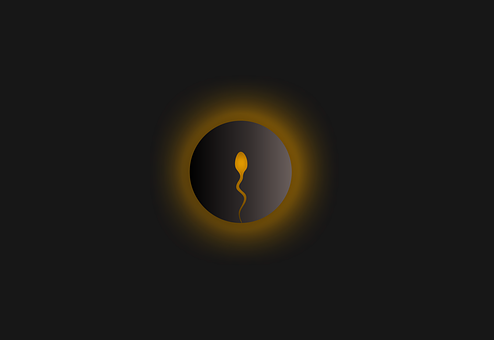Necrospermia: Causes, Symptoms, Diagnosis and Treatments
Date:2019-12-04 click:0

Necrospermia brings much suffering to patients and it leads to male infertility. To know the treatment, we would better to learn the causes of necrospermia at first.
What is necrospermia
Sperms are produced in the convoluted seminiferous tubule of testicle. Under the microscope, a sperm looks like little tadpole with a round head and a slender tail. But sperms might die for varied reasons. When the death rate is higher than 50%, we call it necrospermia, which will cause male infertility.
Causes of necrospermia
The disease is related to spermatogenic dysfunction, varicocele, inflammation of seminal vesicle, prostate and epididymis, poor nutritional status, vitamin A and E deficiency. All of these pathogenic factors can cause spermatozoa to grow and develop poorly, resulting in spermiosis.
The common causes of the disease are:
1. congenital developmental abnormalities such as bilateral cryptorchidism and congenital testicular hypoplasia;
2. systemic factors such as long-term malnutrition, smoking, alcoholism, excessive mental tension, and frequent sexual life;
3. local factors such as mumps complicated by orchitis, testicular tuberculosis, varicocele;
4. obstruction of sperm delivery epididymis and testicular tuberculosis, impotence, Premature ejaculation;
5. seminal plasma can produce antibodies against their own sperm in the body, resulting in male infertility, the ejaculated sperm has self agglutination and can not penetrate the cervical mu
Symptoms
Some patients have no clinical symptom; some might have symptoms of spermatorrhea,prospermia or lack of sexual desire; some might suffer from prostatitis, vesiculitis, orchitis and epididymitis. The patients would find the symptoms like orchialgia, perineum pain, abdominal pain, inguinodynia etc. They could take nomal semen test to identify the disease.
Diagnosis
1. Fructose in seminal plasma was decreased and mycoplasma culture was positive;
2. If the sperm viability is below 60%, or the dead sperm is more than 40%more than three times in a row in the semen analysis;
3. If there are more than 50% of the dead spermatozoa in one hour and more than 70% in six hours after ejaculation three times in a row;
4. Medical history and physical examination can obtain relevant factors, such as reproductive system infection, alcoholism, high temperature operation, etc.
Treatment
Because the prostate, seminal vesicle, parorchis and testicle are close to each other and the glandular tubes are connected, herbal meidicne Diuretic and Anti-inflammatory Pill has effects of clearing away heat and toxic material and are able to remove all kinds of bacteria, virus, mycoplasma and chlamydia.
The prescription strengthens the effectiveness in promoting blood circulation by removing blood stasis, softening hard lumps and dispeling nodes. By the means of detoxification and sterilization, the prescription is capable of preventing fibrosis, softening glandular organs to clear glandular tubes, so as to remove orchialgia, perineum pain, abdominal pain and inguinodynia at prostate, seminal vesicle, parorchis and testicle. Therefore, the necropermia can also be cured.
The key to the treatment of necrospermia is to treat prostatitis and seminal vesiculitis. At the same time, we should pay attention to other causes and carry out treatment timely, such as surgical treatment for varicocele, using hormone drugs to regulate the endocrine function of the body and supplement various nutrients, etc.
In addition, we also need to be equipped with drugs to promote sperm formation and improve sperm vitality, so as to comprehensively improve the quality of semen and improve the pregnancy rate.
1. Antibiotic treatment
It is mainly used for semen abnormality caused by chronic bacterial prostatitis or seminal vesiculitis. Methoxybenzylamine (TMP) was the first choice of antibiotics that could diffuse into prostate. Clinical practice has proved that the combination of trimethoprim (TMP) and rifampicin (RFP) can achieve better results. At the same time, it is advised to drink more water, avoid alcohol and coffee, so as to reduce prostate congestion to prevent prostatitis.
The prescription strengthens the effectiveness in promoting blood circulation by removing blood stasis, softening hard lumps and dispeling nodes. By the means of detoxification and sterilization, the prescription is capable of preventing fibrosis, softening glandular organs to clear glandular tubes, so as to remove orchialgia, perineum pain, abdominal pain and inguinodynia at prostate, seminal vesicle, parorchis and testicle. Therefore, the necropermia can also be cured.
2. Treatment of non-hormone anti-inflammatory drugs
It is mainly used for chronic nonbacterial appendicitis, commonly used drugs are aspirin, indomethacin, butazodine, ibuprofen, etc. Continuous administration for 1 month can reduce the hyperemia and edema of the adnexal gonad, which has a certain therapeutic effect on necrospermia. In addition, since the infection of Chlamydia and Mycoplasma cannot be excluded, tetracycline 0.5g, 4 times/day, doxycycline 100mg, 1 time/day, lasting for 1 to 2 weeks can be considered.
You may also be interested in:



